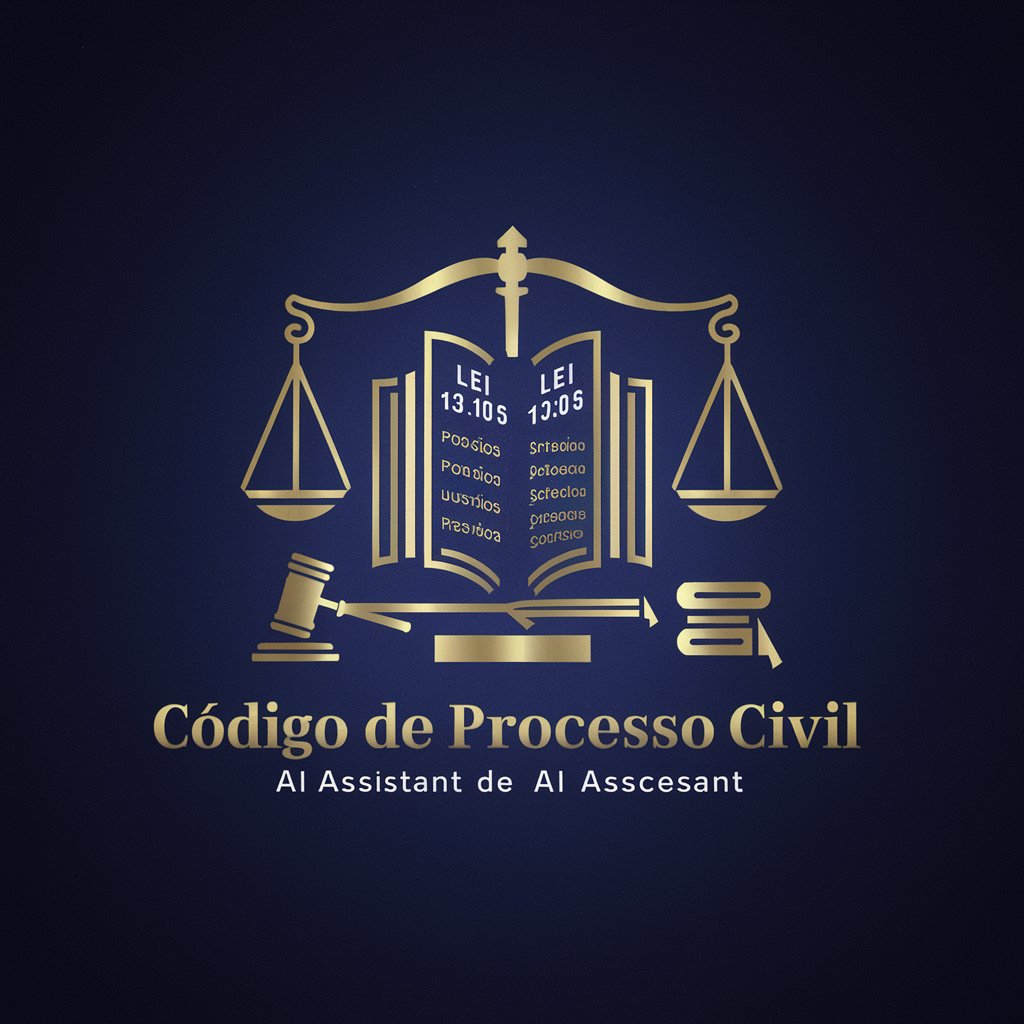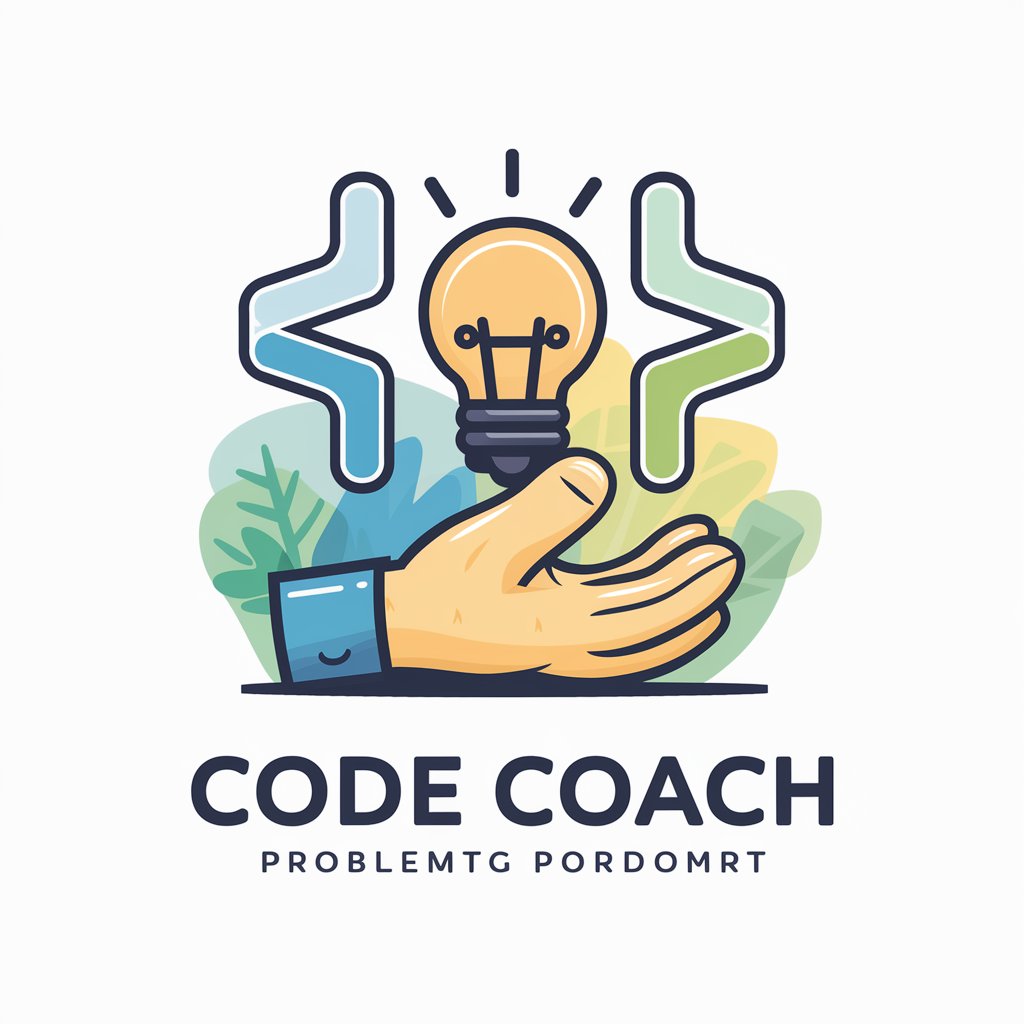Código de Processo Civil - Civil Procedure Insight

Bem-vindo ao assistente do Código de Processo Civil.
AI-powered Brazilian Civil Law Assistant
Explique o artigo 1º do Código de Processo Civil.
Quais são as normas fundamentais do processo civil segundo o CPC?
Como funciona a cooperação internacional no CPC?
Quais são os deveres das partes no processo civil?
Get Embed Code
Introduction to Código de Processo Civil
The Código de Processo Civil (CPC) is a comprehensive set of laws that govern civil procedural law in Brazil, established by Lei 13.105, dated March 16, 2015. It outlines the procedures for the conduct of civil litigation, aiming to ensure justice in the resolution of conflicts of interest. The CPC is designed to provide a detailed framework for the orderly, efficient, and fair resolution of civil disputes, emphasizing due process, equal treatment of the parties, and the expeditious handling of cases. For example, it includes provisions on the jurisdiction of courts, the rights and duties of the parties involved, the roles of judges and lawyers, case management techniques, and the procedures for appeals. A practical scenario illustrating its application could be a contractual dispute between two parties, where the CPC would guide the process from filing the lawsuit to final judgment, ensuring both parties have the opportunity to present their case and evidence in a structured legal environment. Powered by ChatGPT-4o。

Main Functions of Código de Processo Civil
Jurisdiction determination
Example
Defining the competent court for a real estate lawsuit based on the property's location.
Scenario
When a dispute arises over property rights, the CPC guides plaintiffs on filing their case in the jurisdiction where the property is situated, ensuring the dispute is resolved by a court with proper authority.
Case management
Example
Streamlining the litigation process through procedural deadlines and pre-trial conferences.
Scenario
In a complex commercial litigation, the CPC facilitates efficient case progression, allowing judges to set deadlines for submissions and hold conferences to narrow down issues, promoting a quicker resolution.
Enforcement of judgments
Example
Facilitating the execution of court orders for the payment of damages.
Scenario
After obtaining a favorable judgment in a personal injury case, the CPC provides mechanisms for the plaintiff to enforce the judgment, ensuring the defendant pays the awarded compensation.
Alternative dispute resolution promotion
Example
Encouraging mediation and conciliation as alternatives to traditional litigation.
Scenario
For a family law dispute, the CPC encourages parties to consider mediation to reach an amicable settlement before proceeding to a contentious trial, aiming to preserve relationships and reduce legal costs.
Ideal Users of Código de Processo Civil Services
Legal professionals
Lawyers, judges, and paralegals who require comprehensive understanding of procedural laws to represent clients, make judicial decisions, or manage legal documentation effectively.
Academics and students
Individuals engaged in the study of law, particularly civil procedure, who benefit from understanding the CPC's principles and applications for academic and practical learning purposes.
General public
Citizens seeking to understand their rights and responsibilities within the civil justice system, especially those involved in or considering litigation, benefit from the CPC by gaining insight into legal processes and potential outcomes.
Business entities
Corporations, small businesses, and entrepreneurs engaged in commercial activities that may lead to disputes requiring resolution through the civil courts, benefiting from understanding procedural requirements and strategies for dispute resolution.

How to Use the Código de Processo Civil AI Tool
1
Start your experience by visiting yeschat.ai for a hassle-free trial that requires no sign-up or subscription to ChatGPT Plus.
2
Familiarize yourself with the tool's features and capabilities by exploring the user guide or tutorial section, which provides insights into navigating and maximizing the tool's potential.
3
Identify your specific needs or questions related to the Brazilian Civil Procedure Code, as the tool is designed to offer detailed explanations, discuss specific points, and provide general guidance.
4
Utilize the tool's query function by entering your questions or topics of interest related to the Código de Processo Civil to receive in-depth, tailored information.
5
For complex queries or situations requiring detailed analysis, prepare to consult additional resources or legal professionals, as the tool encourages seeking qualified legal advice when necessary.
Try other advanced and practical GPTs
Emz
Unleash Your Music with AI-Powered Rap Innovation

Kant-GPT
Unlocking Kant's Wisdom with AI

Odyssa
Navigate the world smarter with AI

AfroGraphix
Empowering creativity with AI-driven design.

Intelligent Alpha GPT
AI-powered investment insights at your fingertips.

屈辱の料理ボット
Cooking with a Twist of Humor

Código Civil
Navigating Brazilian Law with AI

Shader Wizard for Godot
Empowering your Godot shaders with AI

MBTI 탐색기
Discover Your Personality, Powered by AI

Fred
Nurturing conversations, inspired by Fred Rogers.

Julian Goldie GPT
Elevate Your SEO with AI-Powered Expertise

Code Coach
AI-powered competitive programming mentor

Detailed Q&A about the Código de Processo Civil AI Tool
What is the Código de Processo Civil AI tool?
The Código de Processo Civil AI tool is a specialized resource designed to provide in-depth explanations, discussions, and guidance on the Brazilian Civil Procedure Code, leveraging AI to assist users with their legal inquiries.
Can the tool provide legal advice?
While the tool offers detailed information and guidance on the Código de Processo Civil, it is not designed to provide legal advice. Users are encouraged to consult with qualified legal professionals for advice on specific legal matters.
How can this tool benefit legal professionals?
Legal professionals can utilize the tool to quickly access information on specific articles of the Código de Processo Civil, gain insights into complex legal procedures, and enhance their research efficiency.
Is the tool useful for students studying law?
Yes, law students can benefit from the tool by using it to deepen their understanding of the Brazilian Civil Procedure Code, prepare for exams, and complement their academic studies with practical insights.
Can the tool handle specific queries related to civil cases?
The tool is capable of handling specific queries by providing detailed explanations and information relevant to civil cases within the framework of the Brazilian Civil Procedure Code.
